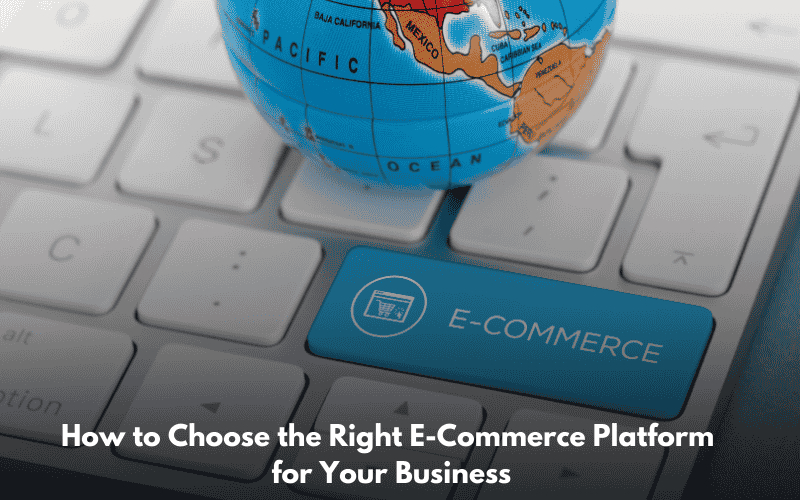Choosing the right e-commerce platform is pivotal for the success of your online business. It’s not just about having an online presence; it’s about finding a robust foundation that supports your business goals, enhances operational efficiency, and drives sales growth.
Understanding Your Business Needs
Before diving into the vast sea of e-commerce platforms, it’s crucial to clearly understand what you need from one. Here’s how to assess those needs effectively:
- Assessment of Products and Services: Are you selling physical goods, digital products, or services? Platforms like Shopify are great for physical and digital goods, while Magento offers the flexibility needed for complex, customizable product options.
- Sales Volume and Traffic Considerations: Consider your expected traffic and sales volume. Platforms like Shopify and BigCommerce scale well for high volumes, whereas WooCommerce might require additional plugins and configurations to handle large scale operations efficiently.
Comparing Major E-Commerce Platforms
Each platform comes with its unique strengths and might cater to different business sizes and types:
- Shopify: Known for its ease of use, Shopify is a top choice for startups and medium-sized businesses. It provides extensive themes, an intuitive setup, and a vast app store to extend functionality.
- Magento: This is ideal for large enterprises that need a customized storefront. Magento supports complex product catalogs and customer groups, but it requires developer skills or a larger budget to manage.
- WooCommerce: Perfect for those familiar with WordPress, WooCommerce offers flexibility through its extensions and plugins but requires hands-on management of hosting and maintenance.
- BigCommerce: With robust out-of-the-box features, BigCommerce suits businesses that are growing fast and need advanced tools without extensive customization.
Key Features to Consider
Selecting a platform should also involve a detailed comparison of key features:
- User Experience: The platform should offer a clean, navigable interface not just for customers but also for the backend user.
- SEO and Marketing Tools: Features like SEO-friendly URLs, integration with Google Analytics, and email marketing tools are essential for driving traffic and sales.
- Payment and Security: Look for platforms that support multiple payment gateways and adhere to the latest security protocols to protect both you and your customers.
- Support and Community: A vibrant community and responsive customer support can be invaluable, especially when you encounter technical challenges.
Cost Considerations
Budgeting is a critical step in the selection process:
- Setup and Monthly Fees: These vary significantly between platforms. Some, like WooCommerce, require only initial setup costs if you already have hosting, whereas others like Shopify charge a monthly fee.
- Transaction Fees: These can eat into your margins, so consider platforms that offer lower fees or different plans based on your sales volume.
- Customization Costs: Depending on your needs, you might need to invest in custom designs or pay for third-party apps and integrations.
Making the Decision
- Trial Periods and Demos: Most platforms offer free trials. Use this time to explore their features and interface to see if they fit your operational style.
- Feedback and Reviews: Look up what other users are saying about their experiences with the platform. Pay particular attention to comments about scalability, customer service, and ease of use.
Conclusion
Choosing the right e-commerce platform involves thorough research and consideration of your specific business needs. By following this guide, you can approach the decision with confidence, knowing you have considered all the important factors that will help your business thrive online.
Actionable Tips
- List out must-have features before starting your platform research.
- Use trial periods to test how well the platform interfaces with your existing processes.
- Regularly review your platform choice to ensure it continues to meet your growing business needs.
By providing a comprehensive view, this article aims to equip readers with the necessary information and confidence to select an e-commerce platform that best fits their business model and growth plans.

